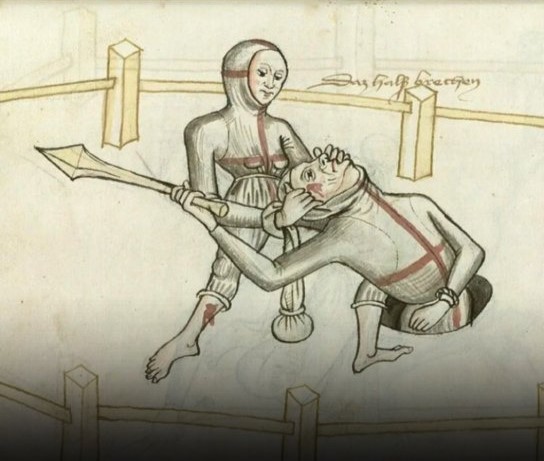Tuesday, February 28, 2023
POETRY SPOT: RICHARD CORY
In 1897 Edwin Arlington Robinson published a poem “Richard Cory” as part of an anthology The Children of the Night. It remains one of his most popular poems.
The composition of the poem occurred while the United States economy was still suffering from the severe depression of the Panic of 1893, during which people often subsisted on day-old bread, alluded to in the poem's focus on poverty and wealth, and foodstuffs.
The poem describes a person who is wealthy, well educated, mannerly, and admired by the people in his town.
What it relates is even more true today.
Poem:
Richard Cory
Whenever Richard Cory went down town,
We people on the pavement looked at him:
He was a gentleman from sole to crown,
Clean favored, and imperially slim.
And he was always quietly arrayed,
And he was always human when he talked;
But still he fluttered pulses when he said,
"Good-morning," and he glittered when he walked.
And he was rich - yes, richer than a king -
And admirably schooled in every grace:
In fine, we thought that he was everything
To make us wish that we were in his place.
So on we worked, and waited for the light,
And went without the meat, and cursed the bread;
And Richard Cory, one calm summer night,
Went home and put a bullet through his head.
Edwin Arlington Robinso
Song:
The poem was adapted by Paul Simon as the song "Richard Cory", recorded by Simon & Garfunkel for their second studio album, Sounds of Silence. Hear it by clicking on the following link:
Lyrics:
They say that Richard Cory owns one half of this whole town
With political connections to spread his wealth around
Born into society, a banker's only child
He had everything a man could want, power, grace and style
But I work in his factory
And I curse the life I'm living
And I curse my poverty
And I wish that I could be
Oh, I wish that I could be
Oh, I wish that I could be Richard Cory
The papers print his pictures almost everywhere he goes
Richard Cory at the opera, Richard Cory at a show
And the rumor of his parties and the orgies on his yacht
Oh, he surely must be happy with everything he's got
But I, I work in his factory
And I curse the life I'm living
And I curse my poverty
And I wish that I could be
Oh, I wish that I could be
Oh, I wish that I could be Richard Cory
He freely gave to charity, he had the common touch
And they were grateful for his patronage, and they thanked him very much
So my mind was filled with wonder when the evening headlines read
"Richard Cory went home last night and put a bullet through his head"
But I, I work in his factory
And I curse the life I'm living
And I curse my poverty
And I wish that I could be
Oh, I wish that I could be
Oh, I wish that I could be Richard Cory
Bottom line:
Some things can’t be purchased, looks can be deceiving, wealth and status don’t ensure happiness.
Monday, February 27, 2023
THE PAST IN PICS
-------oOo------
A mother holds her son lovingly at the beach while posing for a picture. The child is Ted Bundy, who would grow up to be one of the worst serial killers in the world, 1950
Bundy (1946 – 1989) kidnapped, raped and murdered numerous young women and girls during the 1970s and possibly earlier. After more than a decade of denials, he confessed to 30 murders committed in seven states between 1974 and 1978. His true victim total is unknown and likely significantly higher.
Bundy was executed at Florida State Prison in Raiford on January 24, 1989.
Biographer Ann Rule characterized him as "a sadistic sociopath who took pleasure from another human's pain and the control he had over his victims, to the point of death and even after." Bundy once described himself as "the most cold-hearted son of a bitch you'll ever meet," a statement with which attorney Polly Nelson, a member of his last defense team, agreed. "Ted," she wrote, "was the very definition of heartless evil."
Bundy in 1978
_________
Bluetooth is a short-range wireless technology standard that is used for exchanging data between fixed and mobile devices over short distances and building personal area networks.
The Bluetooth logo
The technology was developed by engineers Sven Mattisson Jim Kardach in the late 1990s. Needing a name for it, they came up with Bluetooth, the king of Denmark, Harald "Bluetooth" Gormsson, a name said to refer to his dead tooth.
The king is most famous for uniting Norway and Denmark, a parallel Mattisson and Kardach recognised in that the were "seeking to unite the PC and cellular industries with a short-range wireless link".
The Bluetooth logo is a combination of the Nordic runes for the letters H and B for 'Harald Bluetooth':
_________
In medieval Germany, husbands and wives could legally settle disputes through marital duels. The man fought with one arm tied, the woman with weights and rock-filled sack. If the husband lost, he was beheaded, if the wife lost, she was buried alive. Peace was encouraged before combat.
_________
Below, the grave of Leonard Matlovich, a gay Vietnam Veteran. His gravestone says: "When I was in the military, they gave me a medal for killing two men, and a discharge for loving one."
_________
Martin Luther King removes a burnt cross from his lawn that was placed there by the Ku Klux Klan, 1960:
_________
In 1996, a newborn baby girl was left in a garbage can near the city of Kolkata, India. Three friendly street dogs discovered and protected her for nearly two days, even attempting to feed the child before authorities were contacted and the young one was saved.
_________
Two bullets which collided in the at Gallipoli 1915:
_________
Yousuf Karsh’s iconic portrait of Winston Churchill, 1941:
Unaware that a photographer had been commissioned to take his portrait, Churchill refused to remove his cigar. Once the photographer was set up he walked towards Churchill, who removed the cigar from his mouth. According to the photographer, Yousuf Karsh: “By the time I got back to my camera, he looked so belligerent, he could have devoured me. It was at that instant that I took the photograph.”
_________
Philippe Halsman shot this famous photo of Salvador Dalí in 1948. This was the days before photoshop, special effects and manipulation of images. Halsman had his wife and daughter assist in throwing the cats and water into the photographic frame. After 26 shots they finally captured this image that has echoes of Dali’s own artwork.
_________
Betty White in her Los Angeles home with her dog, 1952.
_________
Special delivery, 1954
Sunday, February 26, 2023
AESOP’S FABLE: THE OAK AND THE REEDS
-------oOo------
Aesop's Fables, or the Aesopica, is a collection of fables credited to Aesop, a slave and storyteller believed to have lived in ancient Greece between 620 and 564 BCE. Of diverse origins, the stories associated with his name have descended to modern times through a number of sources and continue to be reinterpreted in different verbal registers and in popular as well as artistic media. The fables originally belonged to the oral tradition and were not collected for some three centuries after Aesop's death. By that time a variety of other stories, jokes and proverbs were being ascribed to him.
-------oOo------
The Oak and the Reeds
Fable:
A Giant Oak stood near a brook in which grew some slender Reeds. When the wind blew, the great Oak stood proudly upright with its hundred arms uplifted to the sky. But the Reeds bowed low in the wind and sang a sad and mournful song.
"You have reason to complain," said the Oak. "The slightest breeze that ruffles the surface of the water makes you bow your heads, while I, the mighty Oak, stand upright and firm before the howling tempest."
"Do not worry about us," replied the Reeds. "The winds do not harm us. We bow before them and so we do not break. You, in all your pride and strength, have so far resisted their blows. But the end is coming."
As the Reeds spoke a great hurricane rushed out of the north. The Oak stood proudly and fought against the storm, while the yielding Reeds bowed low. The wind redoubled in fury, and all at once the great tree fell, torn up by the roots, and lay among the pitying Reeds.
Moral:
Better to yield when it is folly to resist, than to resist stubbornly and be destroyed.
Comments:
Various morals have been ascribed to this fable:
- It is better to bend than break. It is better to be flexible than stubborn.
- Never be so proud of yourself. One should be humble always.
- Pride goes before a fall.
There are early Greek versions of this fable and a 5th-century Latin version. They deal with the contrasting behaviour of the oak, which trusts in its strength to withstand the storm and is blown over, and the reed that 'bends with the wind' and so survives. Most early sources see it as a parable about pride and humility, providing advice on how to survive in turbulent times.
In modern time it has been argued that the conduct of the reed is not necessarily something to be admired, that it can be seen as cowardly and self-serving. It is also suggested that the fable is a recommendation for acceptance, that the standing up against greater odds, against injustice, racism and the like, for freedom and equality, should not be accepted because of unequal strength.
Typifying this is Teddy Roosevelt’s 1910 “Man In the Arena” speech:
Reader views?
Saturday, February 25, 2023
BEAUTIFUL AND UNUSUAL ARCHITECTURE ...
-------oOo------
The following pics and their captions were sent to me by friend and colleague Tony Z. Beautiful . . . the pics and places, not him.
Thanks, Tony.
-------oOo------
The Reading Room – Royal Portuguese Cabinet Of Reading – Rio De Janeiro, Brazil
_________
Nasir-Ol-Molk Mosque, Also Known As Pink Mosque, A Traditional Shiraz Mosque, Iran
_________
Stained Glass Ceiling Hotel – Gran Hotel Ciudad De México, Mexico City
_________
Hawa Mahal In Jaipur, India
_________
Preserved Edo Period Neighborhood In Japan
_________
Persian Mosque
_________
Spellbinding Bookstore In Chengdu, Sichuan, China
_________
Kylemore Abbey In The Fog, Connemara, Galway, Ireland
_________
Paris, France
_________
This Restaurant In Paris Looking Like A Museum
_________
Ukraine – Lviv, Staircase In The House Of Scientists
_________
Les Espaces D’abraxas, France
_________
Castillo De Colomares, Spain
_________
The Fox Theatre’s Stage From The Main Floor
_________
Four Seasons Resort, Bali.
-------oOo------
More to come
Friday, February 24, 2023
QUOTE FOR THE DAY
When anyone asks me how I can best describe my experience in nearly forty years at sea, I merely say, uneventful. Of course there have been winter gales, and storms and fog and the like. But in all my experience, I have never been in any accident... or any sort worth speaking about. I have seen but one vessel in distress in all my years at sea. I never saw a wreck and never have been wrecked nor was I ever in any predicament that threatened to end in disaster of any sort.
- Edward J Smith,
Captain of RMS Titanic in 1907.
He was planning to retire after the maiden (and only) voyage in 1911.
FUNNY FRIDAY
-------☹😊☹-------
Welcome to Funny Friday readers.
Some stutter humour today, for no other reason than that I came across a stutter joke and have added some more.
Hopefully I will not be taken to task for disability shaming.
Enjoy the weekend Byters.
-------☹😊☹-------
SOME HUMOUR:
_________
"What's your name, son?" The principal asked his student.
The kid replied, "D-d-d-dav-dav-David, sir."
"Do you have a stutter?" the principal asked.
The student answered, "No sir, my dad has a stutter but the guy who filled out by Birth Certificate was an asshole."
_________
Two men go fishing, one has a stutter.
The man with a stutter says “shh ssshhh sshh”. The other man says “What is it, did you catch a fish?” The stuttering man continues to make ssshhh noises, the other man says “Spit it out.” The stuttering man says “Ssshhh ship!!” Before the second man can react, a ship crashes into their boat.
Months later they both have recovered and go on another fishing trip.
The stuttering man again starts saying “Ssshhh.” The second man starts panicking, thinking he’s going to get hurt again. He jumps out of the boat as fast as he can, just as the stuttering man says “Sshhh sshhh Shark!!”
_________
I just found out that my grief counselor died.
Luckily, he was so good at his job, I don't really give a toss.
_________
A really huge muscular guy with a bad stutter walks up to a counter in a department store and asks, "W-w-w-where's the m-m-m-men's dep-p-p-partment?"
The clerk behind the counter just looks at him and says nothing.
The man repeats himself: "W-w-w-where's the m-m-m-men's dep-p-p-partment?"
Again, the clerk doesn't answer him.
The guy asks several more times: "W-w-w-wher's the m-m-m-men's dep-p-p-partment?"
And the clerk just seems to ignore him.
Finally, the guy storms away in anger after not being answered.
The customer who was waiting in line behind the muscular guy asks the clerk, "Why wouldn't you answer that guy's question?"
The clerk replies, "D-d-d-do you th-th-th-think I’m s-s-s-stupid?”
_________
A man tells his doctor, “Doc, help me. I’m addicted to Twitter!”
The doctor replies, “Sorry, I don’t follow you …”
_________
Did you hear about the man with a stutter who went to the shop for a Mars Bar?
He came back with 50 packs of M & M's
-------☹😊☹-------
The President turned to one of his advisors, who happened to be Jewish, and asked, "How come Jews are always so well informed?"
Advisor: "What do you mean sir?"
The President: "It just seems that Jews are always up on the latest news. How do they do it?"
Advisor: "An interesting observation. It could be because when Jews go to the synagogue to daven (pray), they always turn to the person sitting next to them and say "Nu?" (What's up?).
The President: "What? Is it that simple?"
Advisor: "I think so sir."
President: "Well, let's put it to the test. Take me to the nearest Synagogue."
The two board a limousine and are driven to the nearest Synagogue. Once inside, the President sits down among the congregation next to an elderly Jewish man. He looks around, then turns to the man and says softly, "Nu?"
The elderly man leans toward him and replies, "You know, I hear the President is going to daven with us today."
-------☹😊☹-------
LAW & LAWYERS
Also from the vault . . .
A lawyer was working in his office when Satan appeared. "I can make it so you win every case in your career and make huge piles of money. In exchange you will give me your soul, your wife's soul, your children's souls, your parent's souls, your grandparent's souls and the souls of all your friends!"
The lawyer thought it over for a moment and then asked "What's the catch?"
-------☹😊☹-------
LIMERICK OF THE WEEK:
“Given faith,” sighed the Vicar of Deneham,
“From the lusts of the flesh we might wean ‘em.
But the human soul sighs
For a nice pair of thighs
And a little of what lies between ‘em.”
-------☹😊☹-------
GALLERY:
From John P . . .
-------☹😊☹-------
CORN CORNER:
_________
My girlfriend broke up with me because I am a compulsive gambler
Ever since, all I can think about is how to win her back
_________
Jane: I miss England.
Tarzan: I not know you a beauty contest winner.
_________
A guy asks his Roman friend what size a shirt is.
He looks at the XL on the tag and says, "it's a size 40."
_________
Which us a good reason to post another couple of Roman jokes . . .
_________
A bunch of Romans walk into a bar in Rome, one Roman holds up two fingers to the barman..
“5 beers”.
_________
I heard people are trying to ban roman numerals.
Not on my watch.
_________
Pirate Ship Captain: Can someone tell me how to write the number 2 in Roman numerals?
Crew: Aye aye captain.
_________
My daughter has a math test on Roman numerals.
I told her I hope she gets a "C".
_________
When the Romans Conquered Britain in the mid 1st century CE one of the problems they did not anticipate was the rampant fraud being conducted in the bronze trade. Tradesmen who shaped the metal would buy it from merchants who bought it from the miners in the form of bars of bronze, already mixed from copper and tin.
The issue was that many bars were of inferior quality, possessing too much tin which resulted in brittle bronze. The merchants of course would say that they had been told it was good quality, whereas the forgers would report that it had been imperfect batches sold at discounted rates to which the merchants were the ones being fraudulent by trying to sell it at full price.
Gnaeus Julius Agricola, leader of the Roman settlements at the time, made a ruling forbidding merchants from selling raw metal forcing the tradesmen to buy directly from the miners.
This was the first codified example known of the "He who smelt it, dealt it," rule.
-------☹😊☹-------


















































